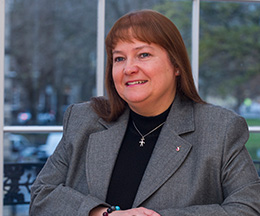Murray Beith Murray LLP is a leading Scottish private client law firm.
For 175 years we have specialised in meeting the legal, financial and administrative needs of individuals and families, family trusts, charities and private companies.
Murray Beith Murray LLP is a leading Scottish private client law firm.
For 175 years we have specialised in meeting the legal, financial and administrative needs of individuals and families, family trusts, charities and private companies.
 When you fail to make a Will, you depend on the law of succession for the distribution of your estate. That means the state will dictate who and to what extent your family will share in your estate. This article deals with the law of succession in Scotland.
When you fail to make a Will, you depend on the law of succession for the distribution of your estate. That means the state will dictate who and to what extent your family will share in your estate. This article deals with the law of succession in Scotland.
In Scotland, if you don’t make a Will, when you die, your spouse or civil partner are entitled to Prior Rights. If you do not have a spouse or civil partner, there will be no Prior Rights payable.
After satisfaction of Prior Rights, your spouse or civil partner and any children are entitled to Legal Rights.
It is also important to appreciate that if you live with a partner but are unmarried, when you die, your surviving partner has no automatic right to share in your estate. They are entitled to neither Prior or Legal Rights and the only way you can protect them is to make a Will.
If you are married or in a civil partnership, when you die without a Will, your surviving spouse or civil partner have first call on your estate in the form of Prior Rights.
There is no formal process to establish Prior Rights. These are automatic rights your surviving spouse or civil partner enjoys. That means they will be entitled to:
The Prior Rights are paid from the net estate and before any other claims are addressed. This means if the Prior Rights exhaust the estate, there will be nothing left to pay Legal Rights.
Following settlement of the Prior Rights, Legal Rights can then be dealt with. Your surviving spouse or civil partner and your children are entitled to Legal Rights. These are:
You should be aware that adopted and illegitimate children will be entitled to Legal Rights. However, stepchildren are not entitled to any Legal Rights in the estate of their stepparent.
As you will now have worked out, the Prior Rights (unless they exhaust the entire estate) and Legal Rights do not use up the whole estate. What then happens to the remainder of the estate after Prior and Legal Rights have been satisfied?
Once Prior Rights and Legal Rights have been satisfied, we need to deal with the distribution of the remainder of the estate. The destination of the remainder of the estate depends on whether there are children. If there are, they inherit the remainder of the estate, heritable and moveable. Where there are no children, since 30 April 2024, the surviving spouse or civil partner inherits the remainder of the estate. Prior to that, the surviving spouse or civil partner only inherited the remainder of the estate where the deceased did not have any surviving parents or siblings.
For these purposes, we have referred to “children” above but, as a result of representation applying, any issue of predeceasing children can take the share that their parent would have inherited had they survived.
Carol McGovern of Murray Beith Murray LLP’s executry group specialises in the administration of executry estates. This article focuses on the position in Scotland. The position in England differs and Murray Beith Murray have dual qualified lawyers who can advise on both jurisdictions.
If this article has raised any questions or you would like to discuss your affairs, then please complete our contact form or call us on 0131 225 1200.
Murray Beith Murray LLP was established in 1849, as advisors for generations of clients, committed to our values of integrity, expertise and trust. This aim and these values continue to this day as does our commitment to be here when you need us.
